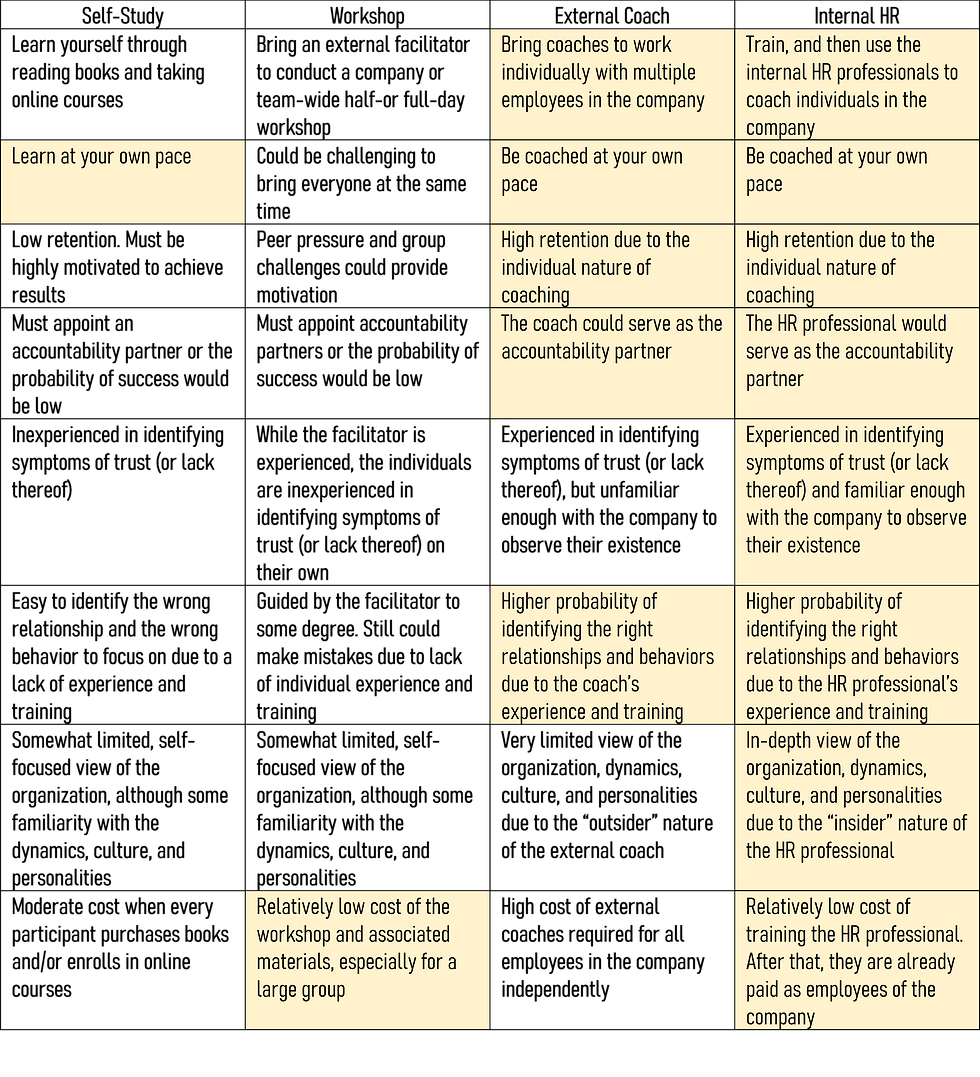Why HR Professionals are Best Suited to Build TRUST in Their Organizations
- Yoram Solomon, PhD

- Jul 14, 2022
- 3 min read

Building trust in the organization greatly benefits the employees, the culture, and the organization’s performance, which are tightly related. Research showed that in high trust organizations, employees are 74% less stressed, 40% less burnt out, take 13% fewer sick days, and at the same time are 106% more energized, 76% more engaged, experience 60% more joy at work, 56% higher job satisfaction, and are 50% more likely to stay with the company at least one more year.
The high-trust culture follows: leaders are 67% more willing to give their followers autonomy so desperately needed for them to be creative. The employees, in turn, are more accountable and are 71% more capable of holding constructive disagreements.
High-trust companies were found to be 50-64% more productive and innovative, projects end 45% more on time and budget, and those companies deliver 286% higher shareholder returns.
Unfortunately, there is no universal or absolute set of behaviors and actions that would build trustworthiness and, in turn, trust. Sure, competence is important, and so is telling the truth. But beyond that, trust is relative. The same behaviors and actions that could cause one person to trust you could cause another person to distrust you. Therefore, trustworthiness must be evaluated and improved one relationship at a time.
But who is responsible for that?
I’m sure you’ll agree that the HR professional should be concerned with the results listed above, or at least the first group. Are they the right people to help build trust?
Knowledge is Not the Issue
Knowing what you are doing (badly) that holds you back from being more trusted is not enough. It’s just like knowing what you must do to lose weight. If you ever struggled with losing weight, you will likely agree that you knew what you had to do, but it wasn’t enough. The Association for Training and Development found that knowing what your goal is only promises a 10% probability of ever achieving it. To increase that probability of achieving your goal (be it losing weight or being more trustworthy) to 95%, you must make a commitment, create a plan, set a timeline, form new habits, and have an accountability partner to hold you accountable for executing your plan long enough for you to form new habits that will change behaviors and build your trustworthiness, and as a result, the trust in you.
Alternatives
There are four alternatives to build trust in the organization, which are listed in the table below.
(The best alternatives are highlighted).

As you can see from the table above, the highest impact on trust would be achieved by training the internal HR professional and then letting them coach individuals in the company to help them form habits that change behaviors and build trustworthiness (and trust). The internal HR professionals are already trained in the HR discipline. They already know the company inside and out and are familiar with its culture, dynamics, and personalities. With additional training and experience, they are much more likely to identify the critical relationships, correctly observe symptoms of trust and distrust, and help the employees choose the right habits to develop and build the right plan to form those habits successfully. They stay inside the company to be the accountability partners for the employees and thus increase the probability of those habits being formed. Finally, since they are themselves, employees of the company, there are no added costs in utilizing them for this purpose.
The other three alternatives are still viable. They are better than not doing anything at all. They might take longer or cost more, but you will get there eventually.

Dr. Yoram Solomon is a trust expert, author of The Book of Trust, host of The Trust Show podcast, a two-time TEDx speaker, and facilitator of the Trust Habits workshop that helps build trust in organizations.











Comments